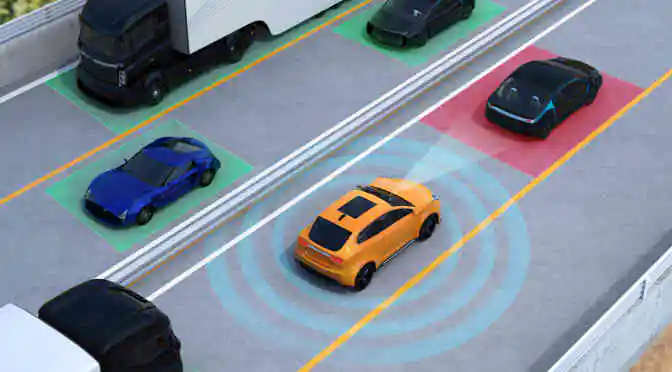A major revolution is taking place on the streets of our cities. And no, it is not just the increase in the volume of vehicles, rather it is more about the new automotive technologies and business models which have changed the face of the automotive industry. With the new concept of car sharing, the launch of robo-taxis, and the growing interest in self-driving vehicles (SDVs) – this surely is one of the best times for the automation industry.
SDVs and Robo-Taxis: Who’s in the driver’s seat?
Also known as autonomous vehicles, SDVs have evolved from the pages of sci-fiction to being the new urban reality. Multiple parties are already working on autonomous vehicle technology; there are SDVs with a wide range of capabilities like single-lane highway driving, autonomous driving, and traffic jam autopilot. Almost all the major stakeholders in the industry, be it the OEMs, technology providers, suppliers, or the regulatory bodies, have pulled up their socks to work towards broadening the scope of autonomous car technology.
The idea of self-driving vehicles is also in sync with the United Nation’s goal of turning cities more safe, resilient, inclusive, and sustainable. As technology takes over the driver’s seat, with minimal to no human-interference, it is expected that intelligent traffic management will turn urban mobility into a seamless process.
In the same vein as autonomous vehicles, Robo-Taxis also has many takers. In recent times, there have been safety issues, and apprehensions about how secure are one’s personal information in a robo-taxi ecosystem. This has prompting OEMs to come up with several security solutions which makes it easy to rely on robo-taxis for everyday commute.
Car sharing: Moving towards a common goal
In a bid to bring down the carbon emissions, and decongest the city streets, the concept of car sharing has gained momentum. Car sharing services are gaining rapid popularity in the urban regions of both developed and developing economies. For instance, while Europe is the largest per capita earner, the Asia-Pacific region is the biggest market for car sharing services. DriveNow, Car2Go, and Flinkster are the major players in Europe; Zipcar is a leading name for car sharing services in North America.
According to Siddharth Jaiswal, our lead analyst in the automotive industry, the concept of car sharing has opened new revenue pools as well as changed the models of OEMs. No doubt, there have already been changes in the urban driving behavior, and as the market for SDVs is still under evolution, the car sharing market is witnessing ample investments. Also, contrary to popular belief, the growing demand for car sharing services has not affected the sales of new cars. In fact, the market for new cars has been growing steadily in the past one decade.
It would be safe to conclude that urban mobility is undergoing a drastic change – a change which has the seeds of revolutionizing this dynamic and competitive sector throughout the globe.



